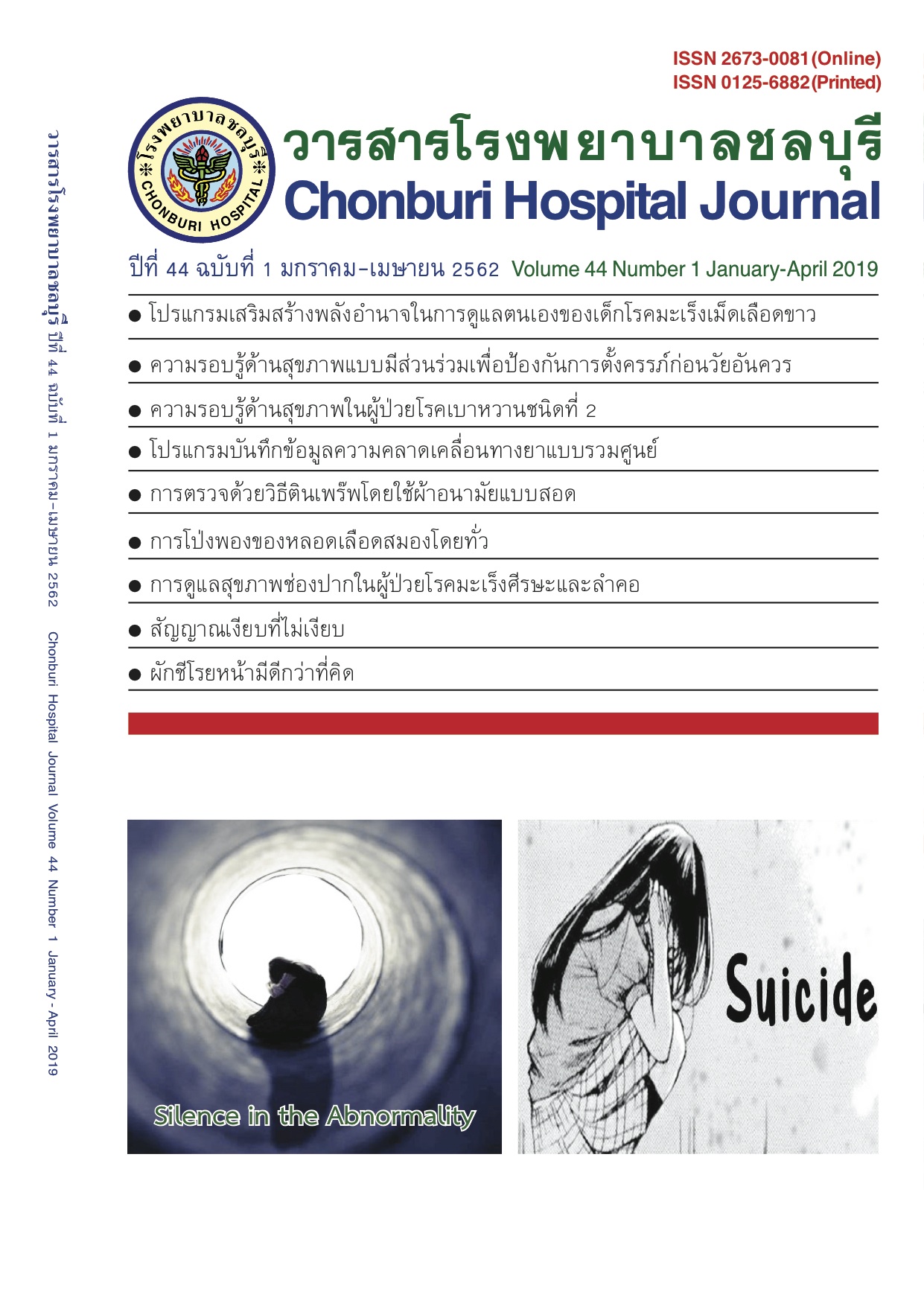Effect Of Empowerment Program On Perceived Self-Efficacy In Self-Care Of School-Age Children With Leukemia Undergoing Chemotherapy
Abstract
Leukemia is a chronic disease that needs continuity of appropriate self-care. Empowering children with leukemia to increase their perceived self-efficacy in self-care is essential. This study was quasi-experimental research having two groups with pretest-posttest design. Study aimed to examine effect of empowerment program on perceived self-efficacy in self-care of school-age children with leukemia undergoing chemotherapy. Participants included 34 children with leukemia who received chemotherapy at a pediatric ward, Chonburi hospital from May to July, 2018. They were assigned to either experimental (n=17) or control group (n=17). Control group had routine care. Experimental group had both routine care and empowerment program based on Gibson’s empowerment concepts (1995).
It consisted of four steps; 1) discovering situational reality, 2) critical thinking reflection, 3) making a decision to select appropriate behavior, and 4) maintaining that behavior. Data were collected by the questionnaire of perceived self-efficacy in self-care for school-age children with leukemia undergoing chemotherapy, which had Cronbach’s alpha value as .88. Data were analyzed by descriptive statistics, independent t-test andpaired t-test.
Study resulted that after experiment, experimental group had higher mean scores of perceived self-efficacy in self-care than before experiment (t16 = 7.785, p < .001) and than control group (t17.64 = 7.30, p < .001) significantly.
Findings suggest that nurses would apply this empowerment program to school-age children with leukemia in order to promote their perceived self-efficacy in self-care. This would lead them to have appropriate self-care behavior.

